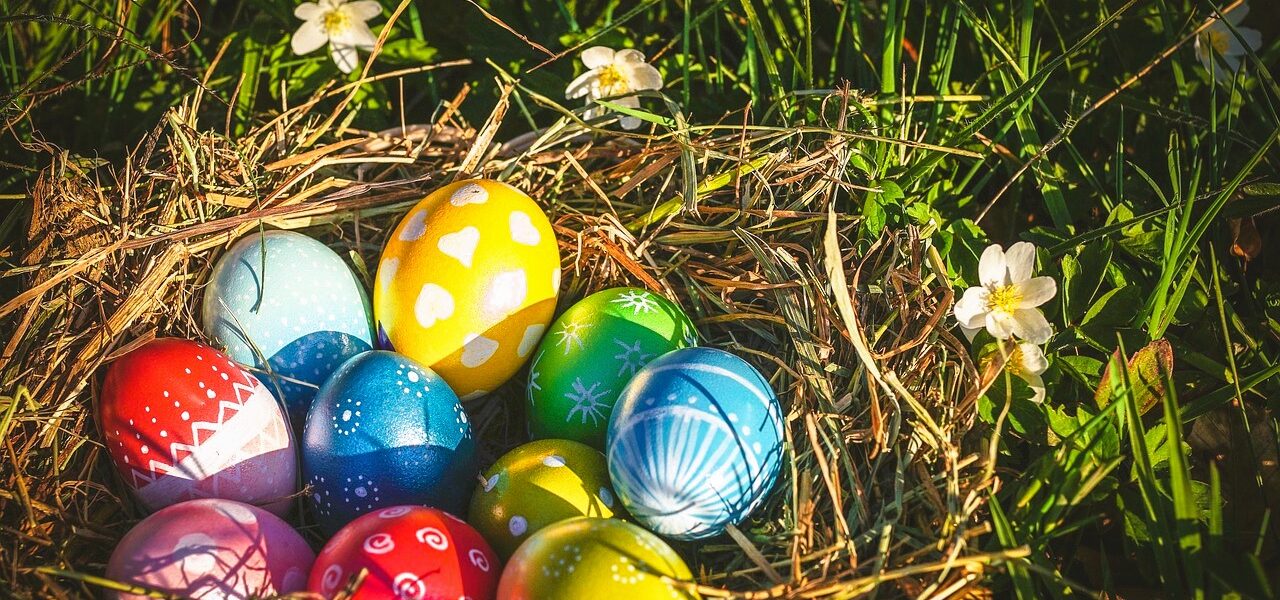Easter is one of the oldest and most important festivals in Germany. Not only it celebrates the resurrection of Christ, but it also celebrates the beginning of a beautiful season – spring! Nature awakens from hibernation during winter. Nature turns green again and flowers sprout in bright colours following natures cycle of life. Easter is just around the corner and here we present popular traditions and Easter customs in Germany.
1 Colouring Easter eggs
Colourful Easter eggs are definitely part of Easter in Germany. A special symbolic power has been assigned to the egg since the earliest times. In ancient cultures and religions, the egg was considered as a symbol of fertility and rebirth. Traditionally, boiled eggs get coloured with bright colours.
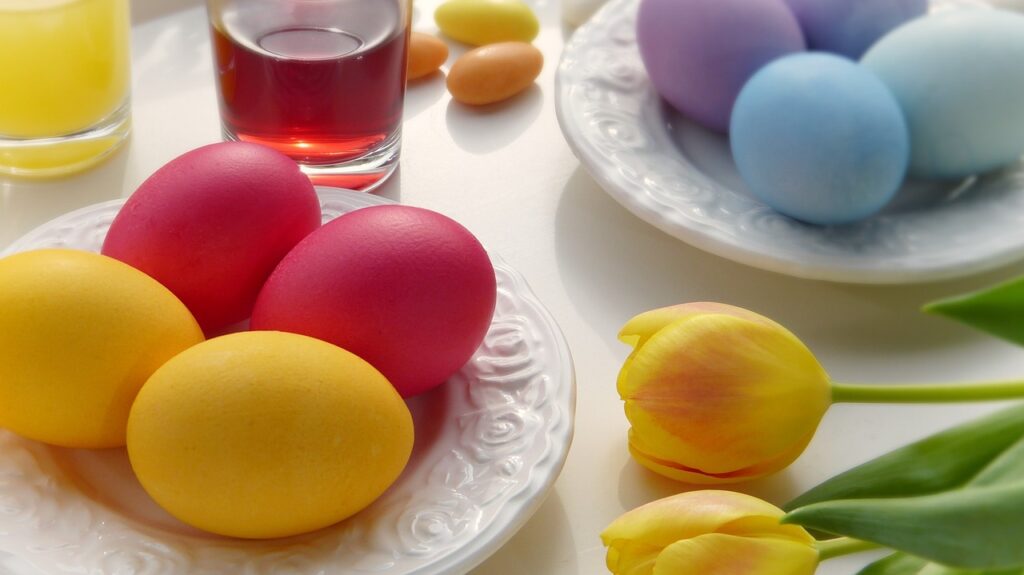
2 The Easter Bunny and the Easter Egg Hunt
Another tradition is the “Easter Egg Hide” which is especially fun for children. Easter eggs or Easter nests are, of course, hidden by the Easter bunny throughout the house or in the garden and must be found by the little ones. Small surprises often await the children. In many cultures, eggs are considered a symbol of life. The rabbit was already considered a symbol of fertility in the old Germanic culture.
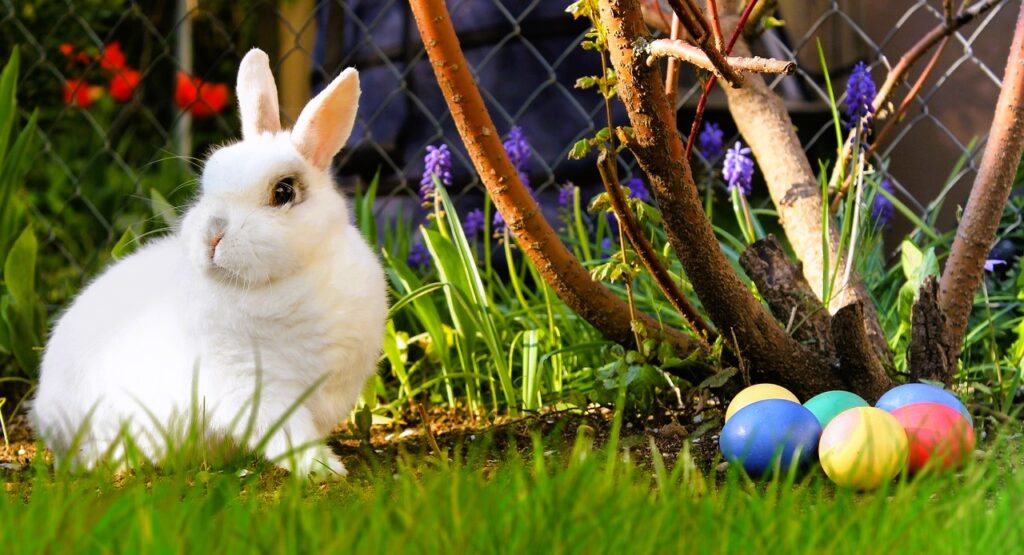
3 Visiting Easter markets in Germany
During Easter season there are many beautiful markets in Germany where you can spend your time well. The so called spring markets attract with stalls and a wide range of goods. Here you find a wide range of Easter decorations, gifts, handicrafts and local culinary delights.
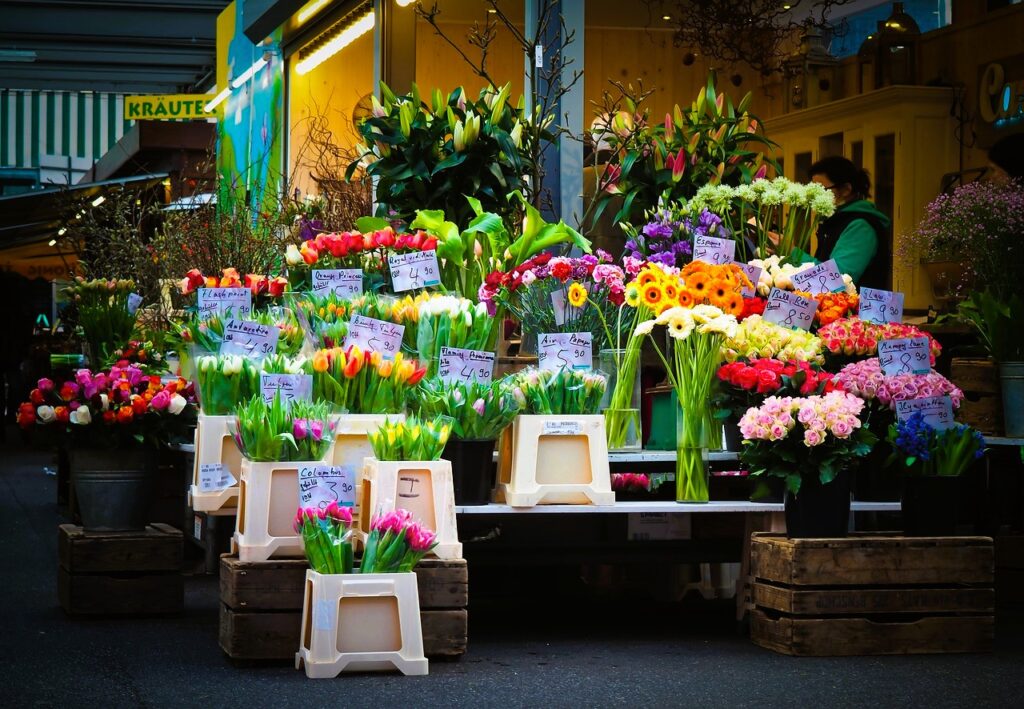
4 Preparation of Easter bread
Easter bread is a pastry with a great tradition. Since the Middle Ages, many people have eaten the sweet Easter bread in the afternoon or for breakfast. For a long time, the 40-day fasting period was part of Easter. Afterwards sweet treats could be nibbled again, which is why the Easter bread is usually sweet. Even today, in many regions, Easter bread is part of breaking the fasting at Easter.
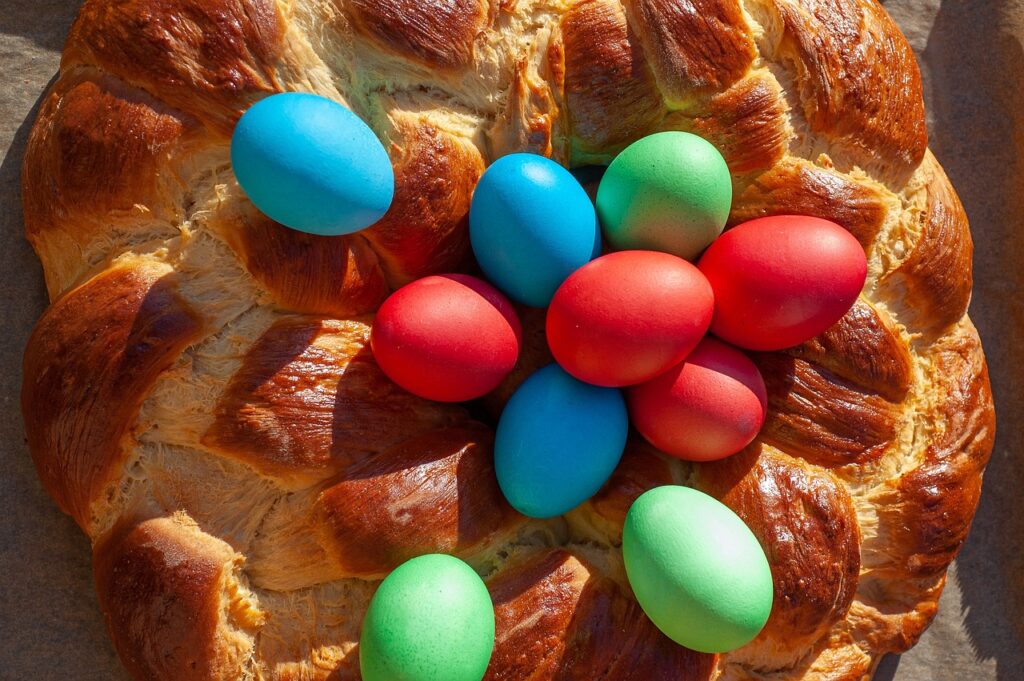
5 Organising a traditional Easter breakfast
In Germany, many families meet on Easter Sunday for a traditional Easter breakfast. In addition to the typical ingredients, Easter classics such as colourful eggs, Easter bread and Easter ham are also served. Discover culinary Germany.
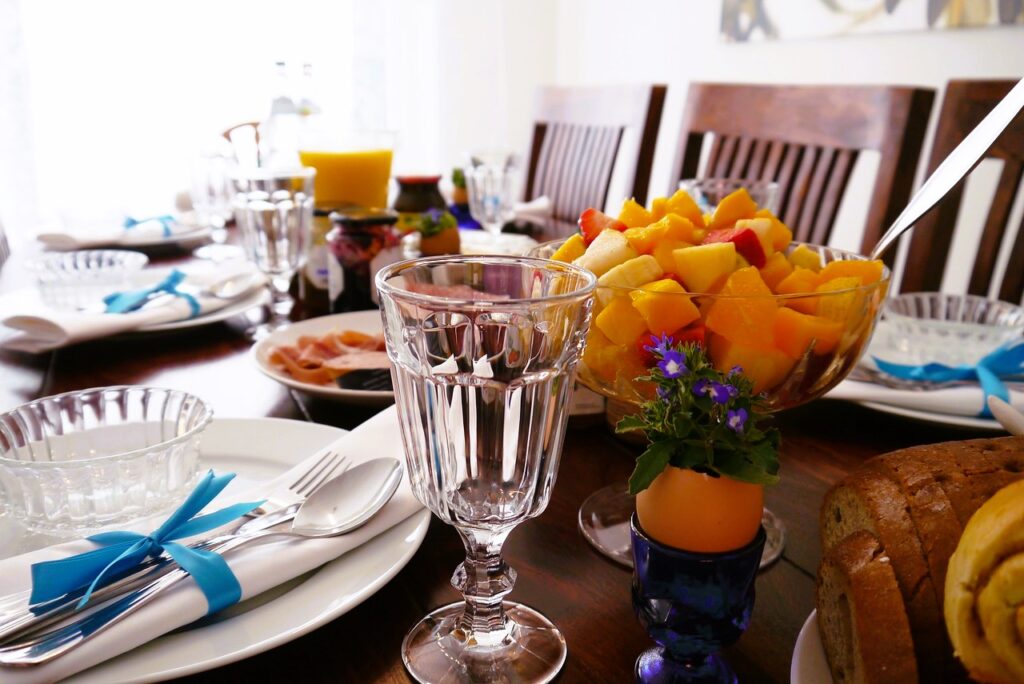
6 Attending an Easter fire
The Easter bonfire, which is kindled in the Easter vigil, has a long tradition. In Christianity, this is the night from Holy Saturday to Easter Sunday. From a Christian point of view, the Easter fire symbolises the victory of light over darkness.
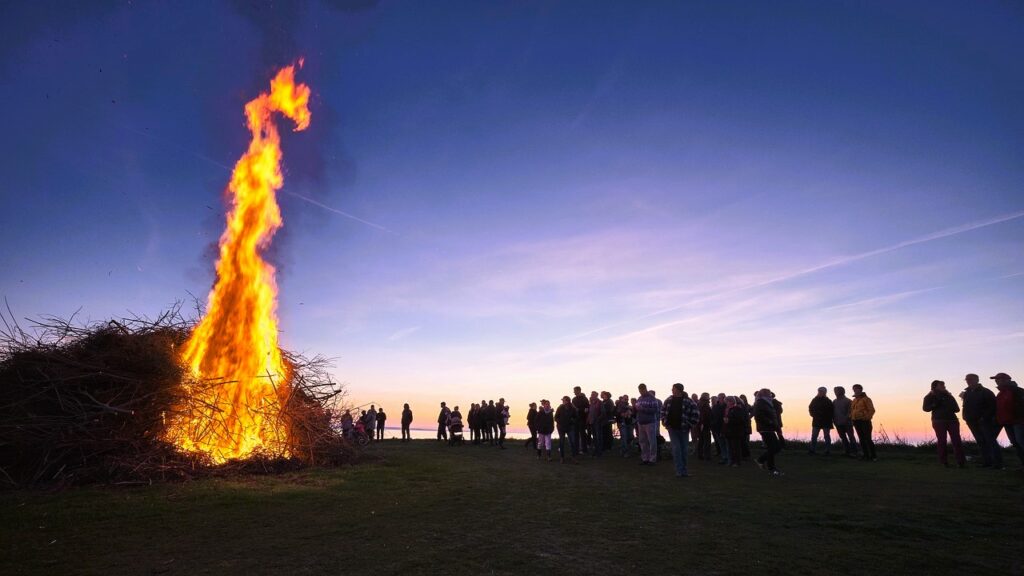
Would you like to visit Germany during Easter? For more inspiration for a holiday in Germany please click here to discover a selection of Germany itineraries.

